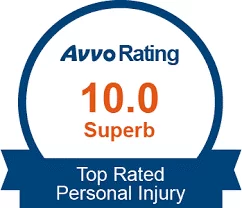Personal injury accidents can have long term physical, emotional, psychological effects on your wellbeing. When it comes to accident claim recovery, there are multiple moving pieces that need to be coordinated, to ensure the victim is able to secure satisfactory redressal. Below are some pointers to help you through this exhausting process.
1. Ensure you get a thorough investigation
In the aftermath of a traumatic accident, it is understandable that one feels shaken and isn’t in the right frame of mind. However, this is the perfect time to find reliable information about the accident. Never leave the accident site empty-handed. Collect witness statements, photographs, contact details of the witnesses or other victims, a copy of the police report, physical remnants of the automobile, any other evidence you may believe holds value to understanding the incident better. Follow up wherever necessary, as this is the first step towards developing a case for an accident claim
2. File a police report
Sometimes, depending on the gravity or location of the accident, the police may show up for investigation. If they don’t, make sure to report the details of the accident to the nearest precinct, share any and all information mentioned above with them and file an official accident report. Not filing a police report immediately might make insurance company question the seriousness and legitimacy of the case
3. Get a complete physical including necessary follow up procedures
After the initial shock of a car accident, one may become lax in getting a thorough physical checkup. Most times, victims only check for visible injuries, thus ignoring a whole set of concealed injuries that may be fatal or cause long term damage. While these are crucial in helping you build your life back, they also form an important part of your accident claim. So, take that trip to your doctor and get an examination done.
4. Don’t share medical files & data with the Accident Claim adjuster
An insurance adjuster is an evaluation specialist sent by the offender’s insurance company to evaluate the validity of your claim. They are specially trained to find loopholes in your arguments and use those against you in the case. Sharing sensitive private information with such an adjuster is dangerous, for they can pick elements from your history or medical data to turn the case against you. The only people you should be sharing your medical files, reports, automobile data are your insurance agent and your trusted personal injury lawyer.
5. Same goes for the other party’s lawyers
Sometimes, the at-fault party’s lawyer or insurance agent might contact you to gain access to documents, reports, etc. While these claims might be legitimate, it is always advisable to let a lawyer manage these dealings, so as to ensure no rules are broken and no damage is done to your case.
6. Maintain photographs, testimonies, hospital bills and receipts related to your accident
As the case proceeds, you will need all possible supporting documents to ensure you receive the claim amount. Hence, maintain accident site photographs, even simple ones clicked by your smartphone, of your injuries, the damage to your automobiles, police reports, witness testimonies, as well as receipts of any other costs incurred because of the accident (towing trucks, mechanics, repaint, the list is endless). These show the extent of hardship suffered by you and help you obtain the right claim for your loss. If you feel unable to manage all this, hand over the complete docket to your lawyer, so they may deal with the parties involved
7. Get the insurance company to set up a high reserve account
A high reserve account is a special temporary account that your insurance company establishes to pay for expenses related to the said accident. Make sure your company follows this to help you as well as the company understand the total sense of damage caused.
8. Know your sources for insurance coverage
Sometimes in complicated accident scenarios, there are multiple parties at fault, effectively allowing you to collect accident damage from different at-fault parties. There may also be cases where you as a victim can collect money from two or three different insurance policies at the same time. Speak with your personal injury lawyer, who can guide you through the intricacies of these, and lead you to the highest claim.
9. Continue under your doctor’s care until your doctor releases you
Accident injury victims often underestimate the extent of damage undergone by the body and pause treatments halfway. This is understandable, but not ideal. Completing the prescribed procedure and treatment is important not only for the benefit of your health but also for the purpose of your claim.
10. Check rules around recorded statements, and if in doubt, just say NO
Sometimes, after an accident, you may receive a phone call from the third-party organizations, asking for a recorded statement. Do not agree to one. Unfortunately, in the state of Georgia, audio recording a private conversation only needs the consent of one party, meaning the person/party can easily record your statements and use them against you. It is therefore important that you refuse to engage in any conversation. Some other states in the US have more robust laws. However, when in doubt, say NO!
11. Read your insurance policy for coverage information
Your insurance policy papers contain extensive details that can help you understand what injuries, type of accidents, type of claims, and claim amounts are covered by the policy. Take time to read through and understand the technical terms and clauses. Ask for help if needed so you are never caught unaware.
12. Don’t let the insurance adjuster pressure you into settling your case
One of the most effective tricks used by claims adjusters is to pressure the victim into settling for a certain amount. Out of court settlements are not wrong, and one is justified to want to get over with the process, and pivot to a normal life after an accident. However, adjusters often play tricks like getting the victim to accept part fault, pick elements from their medical history against them etc. to settle at a lower amount. Don’t fall prey to such tricks. If you feel incapable of holding conversations with the adjuster, ask your lawyer to be present to ensure you don’t walk into a trap.
13. Consider and be prepared to file a lawsuit if the settlement offer is not fair
This is a conversation your lawyer will have with you when you come about halfway through a personal injury claim. Share your expectations with your lawyer, discuss what you feel is the justified compensation, but also be ready to file a lawsuit if the parties are unable to reach a fair settlement.
14. If you decide to hire a lawyer, choose one who isn’t afraid to go to court
Insurance companies keep an eye out on personal injury lawyers. They know which ones will pick and win the fight, as opposed to ones that will settle quickly. Make sure your lawyer has the experience and the grit to fight out a tough battle.
15. Always tell the truth to everyone involved
This is the most important aspect of building a strong personal injury case. As a victim, your best chance is when you exhibit complete honesty with your case. Share every detail with your lawyer, and maintain the same standard while reporting the case, with all parties. This way, you are able to build the seriousness and legitimacy needed to secure a suitable accident claim.
All of this can be an extremely daunting endeavor and not one you need to brave alone. If you live around Greater Atlanta and need a personal injury lawyer to discuss a case, or have a trusted guide for the future, reach out to Attorney Riah Greathouse today. Holding an experience of over 1000+ cases across the state of Georgia, Greathouse Trial Law LLC is a dependable firm that will fight hard to get you your due. Contact them today for a free consult.


